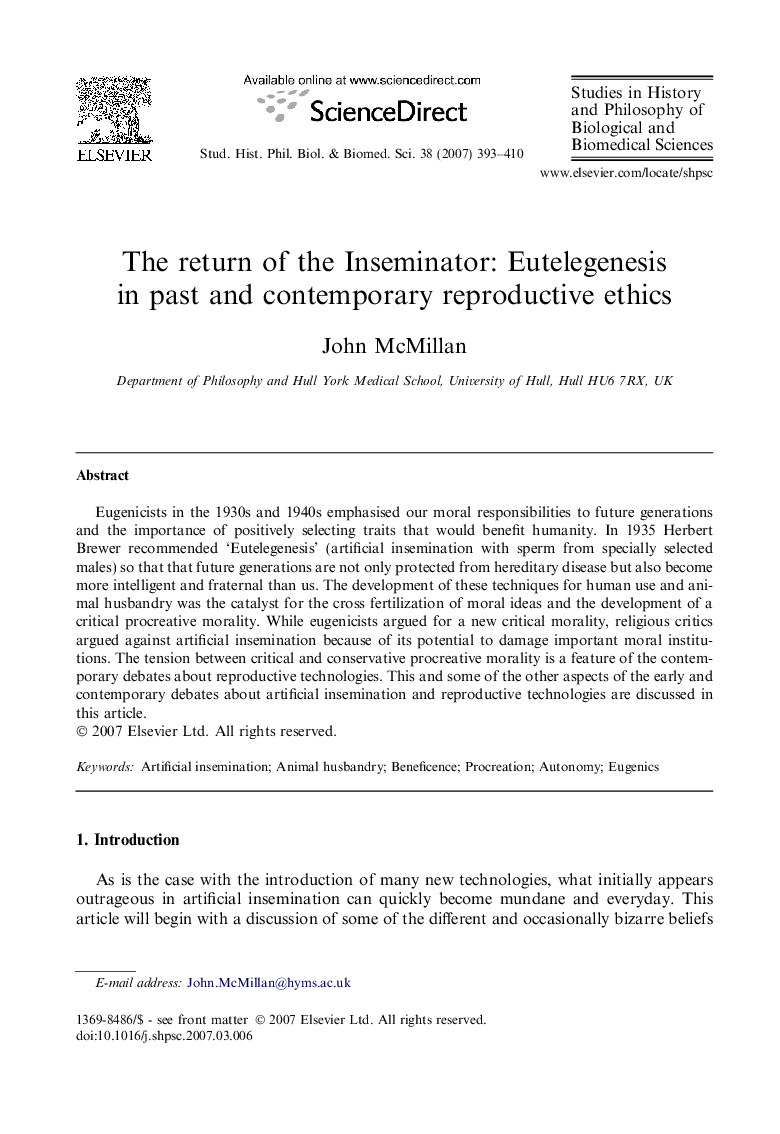| کد مقاله | کد نشریه | سال انتشار | مقاله انگلیسی | نسخه تمام متن |
|---|---|---|---|---|
| 1162239 | 1490550 | 2007 | 18 صفحه PDF | دانلود رایگان |
عنوان انگلیسی مقاله ISI
The return of the Inseminator: Eutelegenesis in past and contemporary reproductive ethics
دانلود مقاله + سفارش ترجمه
دانلود مقاله ISI انگلیسی
رایگان برای ایرانیان
کلمات کلیدی
موضوعات مرتبط
علوم زیستی و بیوفناوری
علوم کشاورزی و بیولوژیک
علوم کشاورزی و بیولوژیک (عمومی)
پیش نمایش صفحه اول مقاله

چکیده انگلیسی
Eugenicists in the 1930s and 1940s emphasised our moral responsibilities to future generations and the importance of positively selecting traits that would benefit humanity. In 1935 Herbert Brewer recommended 'Eutelegenesis' (artificial insemination with sperm from specially selected males) so that that future generations are not only protected from hereditary disease but also become more intelligent and fraternal than us. The development of these techniques for human use and animal husbandry was the catalyst for the cross fertilization of moral ideas and the development of a critical procreative morality. While eugenicists argued for a new critical morality, religious critics argued against artificial insemination because of its potential to damage important moral institutions. The tension between critical and conservative procreative morality is a feature of the contemporary debates about reproductive technologies. This and some of the other aspects of the early and contemporary debates about artificial insemination and reproductive technologies are discussed in this article.
ناشر
Database: Elsevier - ScienceDirect (ساینس دایرکت)
Journal: Studies in History and Philosophy of Science Part C: Studies in History and Philosophy of Biological and Biomedical Sciences - Volume 38, Issue 2, June 2007, Pages 393-410
Journal: Studies in History and Philosophy of Science Part C: Studies in History and Philosophy of Biological and Biomedical Sciences - Volume 38, Issue 2, June 2007, Pages 393-410
نویسندگان
John McMillan,